Dodsworth (1936) Online
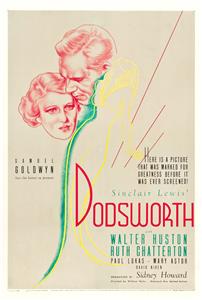
A bittersweet tale of the increasing estrangement of a retired automobile tycoon and his wife. Increasingly obsessed with maintaining an appearance of youth, she falls in with a crowd of frivolous socialites during their "second honeymoon" European vacation. He, in turn, meets a woman who is everything she is not: self-assured, self-confident, and able to take care of herself.
| Complete credited cast: | |||
| Walter Huston | - | Sam Dodsworth | |
| Ruth Chatterton | - | Fran Dodsworth | |
| Paul Lukas | - | Arnold Iselin | |
| Mary Astor | - | Edith Cortright | |
| David Niven | - | Captain Lockert | |
| Gregory Gaye | - | Kurt Von Obersdorf | |
| Maria Ouspenskaya | - | Baroness Von Obersdorf (as Mme. Maria Ouspenskaya) | |
| Odette Myrtil | - | Renée de Penable | |
| Spring Byington | - | Matey Pearson | |
| Harlan Briggs | - | Tubby Pearson | |
| Kathryn Marlowe | - | Emily Dodsworth McKee | |
| John Payne | - | Harry McKee (as John Howard Payne) |
William Wyler thought the characterization of Mrs. Dodsworth was too black and white and insisted on some subtleties to the performance. Ruth Chatterton vigorously disagreed with this interpretation and the two would often argue fiercely on the subject. At one point Chatterton slapped Wyler across the face and retreated to her dressing room. In her memoirs, Mary Astor observed that Chatterton's character "was that of a woman trying to hang onto her youth--which was exactly what Ruth herself was doing. It touched a nerve."
William Wyler spent a whole afternoon shooting the sequence where Fran (Ruth Chatterton) burns a letter from her husband; he wanted the letter to specifically blow gently along the terrace, stop for a moment, and then continue to flutter as the scene faded to black as a metaphor for Fran and Sam's failing marriage.
At the time of filming, Mary Astor was going through a very public and very scandalous divorce from her husband, who used Astor's diary to prove that she had been having an affair with playwright George S. Kaufman. With the press constantly stalking her, she sometimes slept on the set to avoid confrontation. Many people involved in the production sided with Astor throughout the ordeal, including William Wyler, Samuel Goldwyn and Ruth Chatterton, who appeared as a character witness on Astor's behalf.
This marks the first time under the Production Code that a man is seen to walk out of his marriage and not get punished for it.
Mary Astor wrote in her memoirs that Edith Cortright was her favorite role, also reflecting that she channeled her struggle of her public divorce into her role: "When I went into court and faced the bedlam . . . that would have broken me up completely, I kept the little pot boiling that was Edith Cortright."
Producer Samuel Goldwyn, director William Wyler and actors Walter Huston and Maria Ouspenskaya all received their first Academy Award nominations with this film.
MGM considered a remake in the mid-1950s with Gregory Peck in the title role, Elizabeth Taylor as the wife and Grace Kelly as Edith with Julius J. Epstein doing the adaptation. They were not able to schedule the three and plans were abandoned.
This film was selected to the National Film Registry, Library of Congress, in 1990.
William Wyler and Ruth Chatterton fought bitterly almost daily on the interpretation of Fran. Chatterton felt she should be played entirely as a villainess, whereas Wyler found reasons to sympathize with the character. According to Mary Astor, the tension was increased by Chatterton's own desperation at her advancing age. At 43 she was far from an old woman but well past the age when actresses typically enjoyed continued audience appeal and their choice of roles. Once a big star on stage, and briefly one in films a few years earlier, her success was waning and, according to Wyler, she exhibited very "haughty" behavior on the set. She was self-conscious about her figure and her looks, insisting on daily facials to maintain a youthful glow. Her insecurities manifested themselves as hatred and fear toward Wyler and his multiple-take working method. At one point she reportedly slapped the director's face and locked herself in her dressing room.
Mary Astor enjoyed working with William Wyler, finding him to be "an inspirational director, tough and exacting but sensitive." She especially appreciated how he ended the film on a close-up of her, not strictly out of vanity but from the awareness that the audience would enjoy having the story end on the high note of Edith's radiance at seeing Sam return to her.
David Niven later said he was "bloody miserable" working with William Wyler, whom he described as a "Jekyll and Hyde" and "a sonofabitch to work with." Although conceding Wyler could be "kind, fun and cozy" off the set, Niven said "he became a fiend the moment his bottom touched down in his director's chair." Wyler was not terribly impressed with Niven's talent, either, later noting that he was little more than "a sort of playboy around town." However, the director thought that since Niven was essentially playing himself on screen, he was perfect for the part of the charming cad Captain Lockert.
One of the top 20 box office hits of its year.
Ruth Chatterton's final American film.
David Mamet, in his book "Bambi vs. Godzilla", cites this film as one of his favorites.
Although the film was shot entirely in the studio, William Wyler sent a camera crew to London, Paris, Vienna, Montreux and Naples for background shots that would be projected behind the sets to recreate the Dodsworths' European tour. Wyler knew many of the locales from personal travels and gave minutely detailed instructions about the kinds of shots he wanted, but many of them were rejected in the final cut in order to keep the film from feeling like a travelogue. Only those crucial to the story survived.
William Wyler and Walter Huston were friends who worked well together, especially since their ideas about screen acting perfectly meshed. "No acting ruses, no acting devices, just the convincing power that comes from complete understanding of a role," Wyler noted. He credited Huston's thousands of hours on stage in the role with making for a "letter-perfect" film performance.
In 1995, Milos Forman announced that he would be directing an Alfred Uhry-scripted remake with Harrison Ford in the title role after he completed Larry Flynt - Die nackte Wahrheit (1996)
The play opened on Broadway on 24 February 1934 and had 315 performances. Walter Huston, Harlan Briggs and Charles Halton reprised their stage roles in the film, but Halton's footage was cut from the final print. Also in the opening-night cast were Fay Bainter as Fran Dodsworth, Hal K. Dawson, Beatrice Maude (also in the film), Ivan Miller, Kent Smith, Ninetta Sunderland (Huston's real-life wife) and Frederick Worlock.
One of two films made in 1936 by William Wyler adapted from a successful stage play. The other was Infame Lügen (1936) which was an adaptation of Lillian Hellman's play "The Children's Hour".
Film debut of John Payne.
The Campbell Playhouse broadcast a radio adaptation starring Orson Welles as Samuel Dodsworth, Fay Bainter as Fran Dodsworth, and Nan Sunderland as Edith Cortright on November 26, 1939.
Included among the "1001 Movies You Must See Before You Die", edited by Steven Schneider.
Became the joint first film to be nominated for Best Actor and Best Supporting Actress at the Academy Awards with Mein Mann Godfrey (1936).
Included among the American Film Institute's 1998 list of the 400 movies nominated for the Top 100 Greatest American Movies.
"Lux Radio Theater" broadcast a 60 minute radio adaptation of the movie on October 4, 1937 with Walter Huston reprising his film role.
The original Broadway production opened at the Shubert Theater and ran for 147 performances.
Filming began after William Wyler spent Christmas with Walter Huston and his family.
"The Screen Guild Theater" broadcast a 30 minute radio adaptation of the movie on February 1, 1943 with Walter Huston reprising his film role.
"Theater Guild on the Air" broadcast a 60 minute radio adaptation of the movie on October 6, 1946 with Walter Huston reprising his film role.
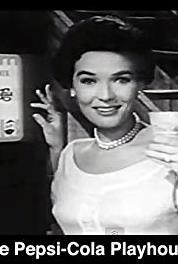
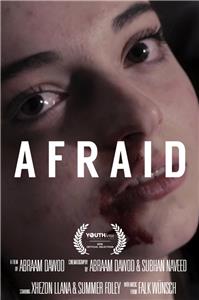

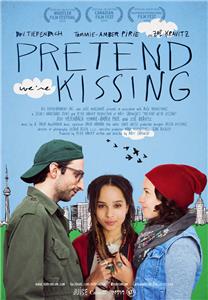
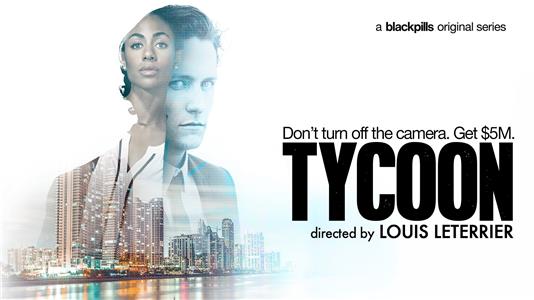
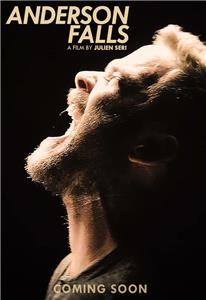
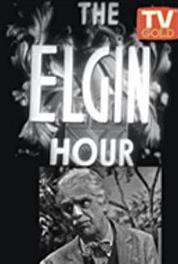

User reviews